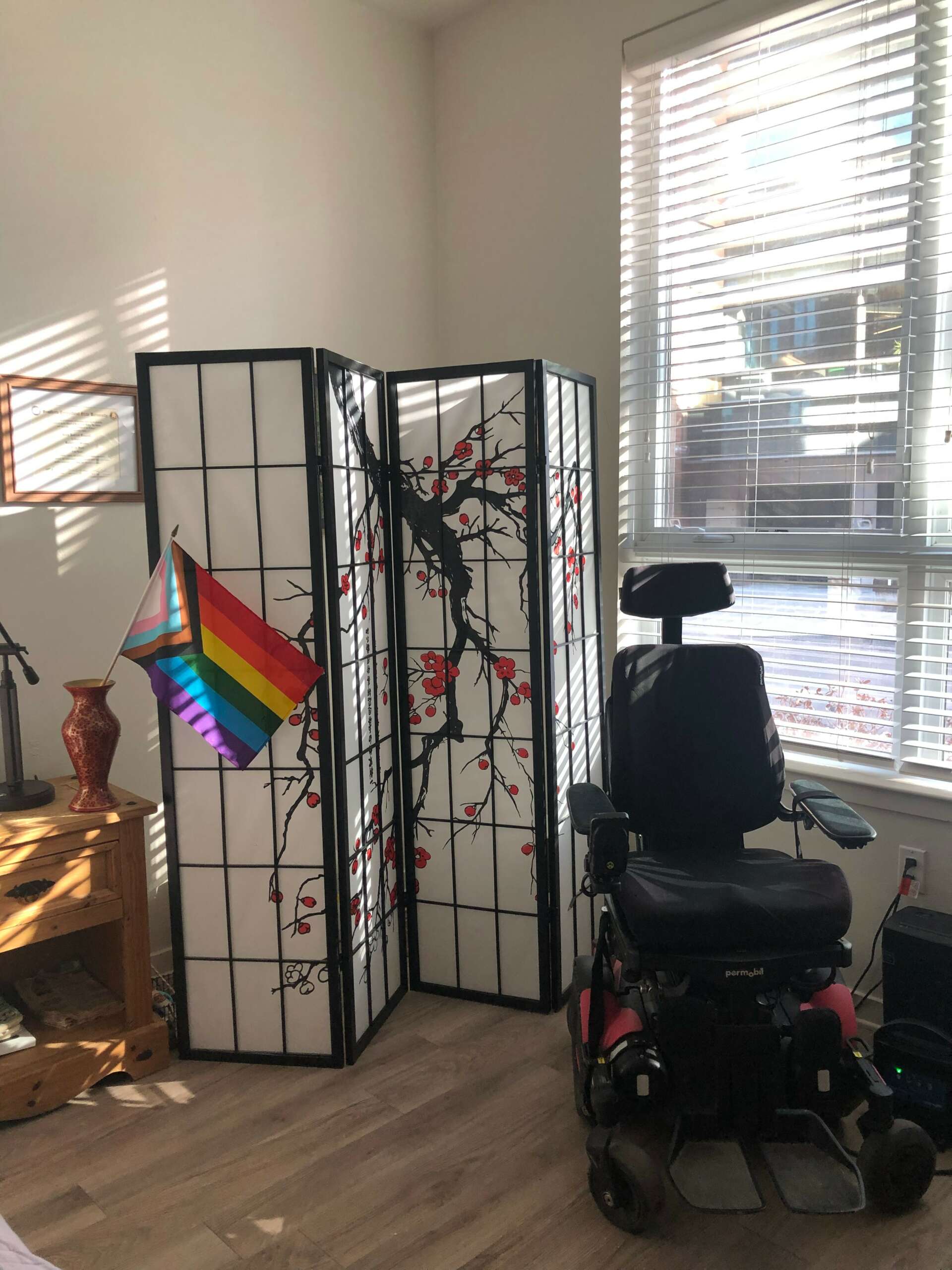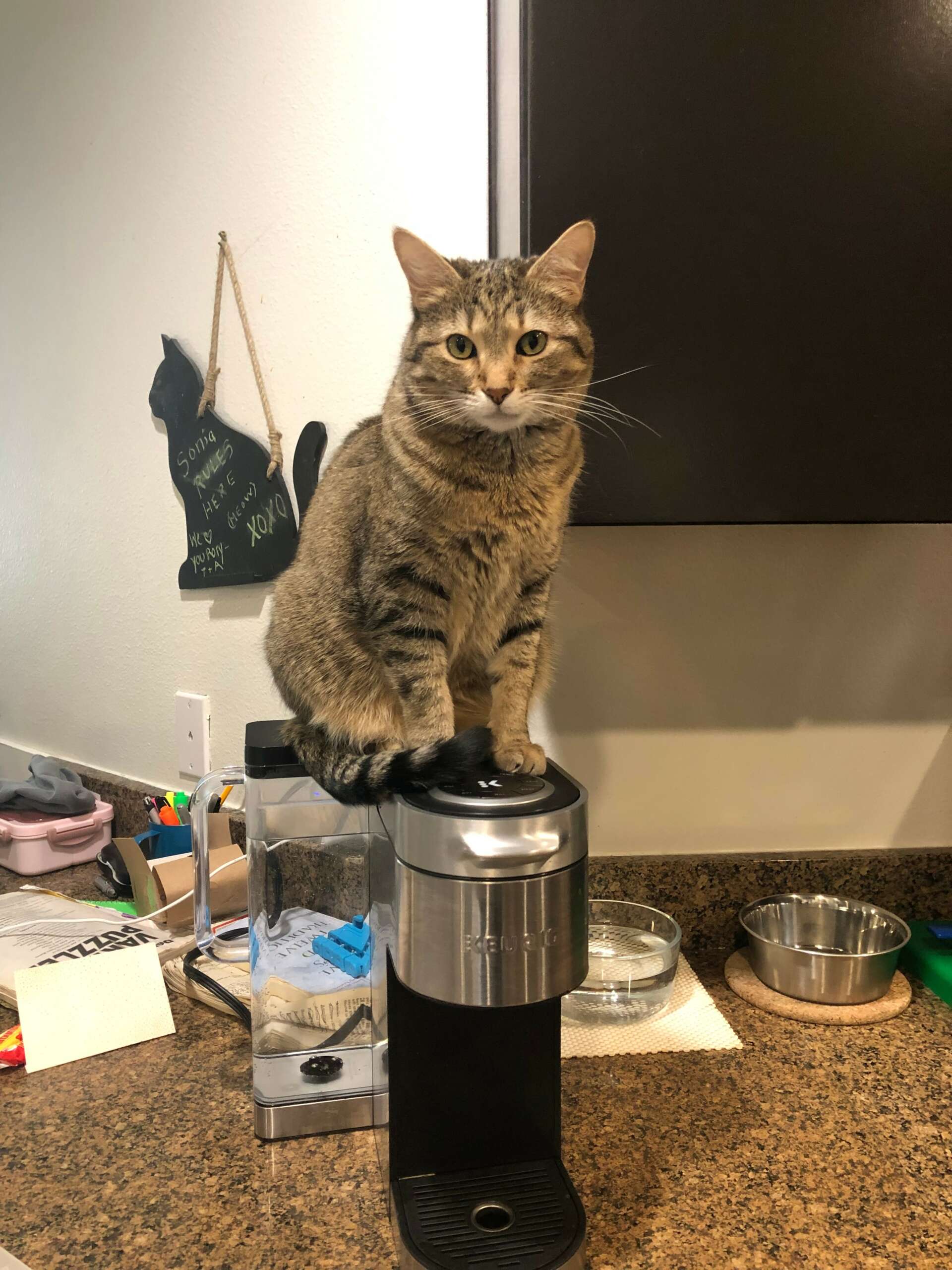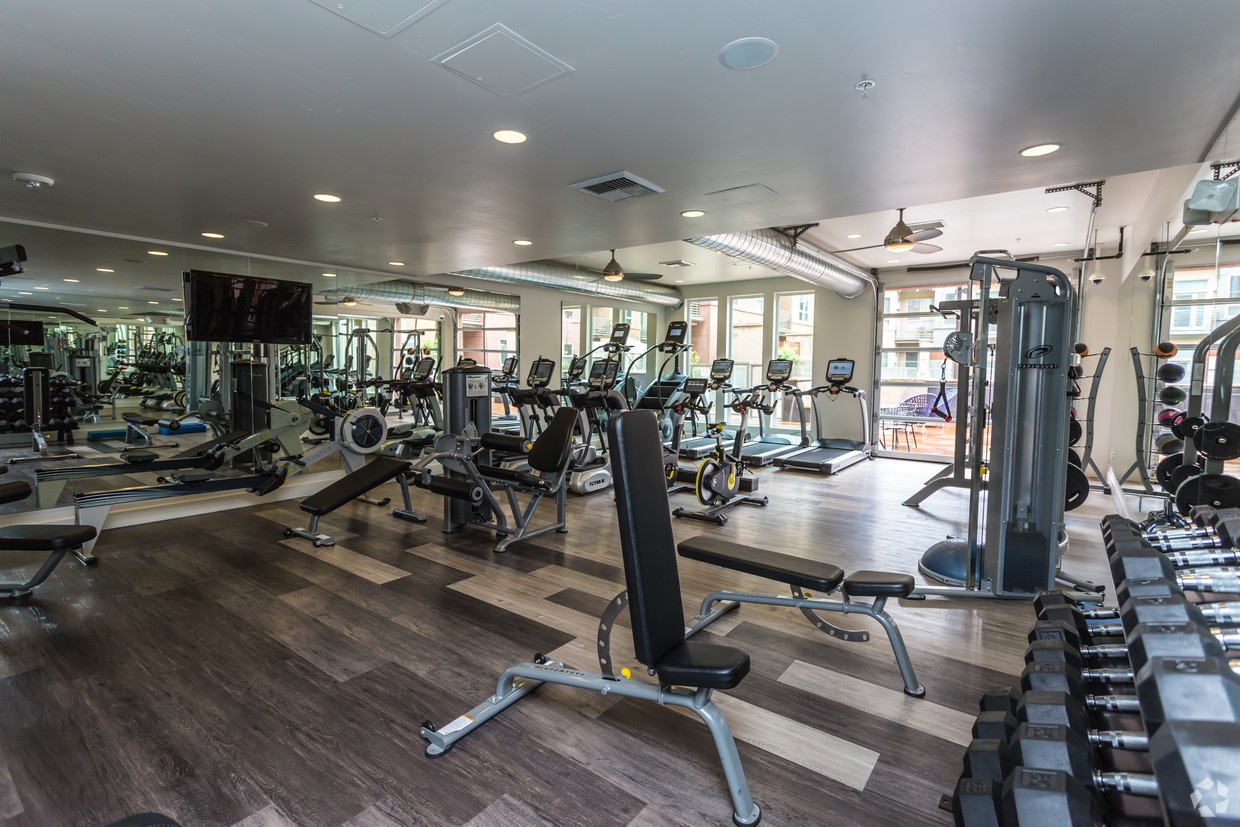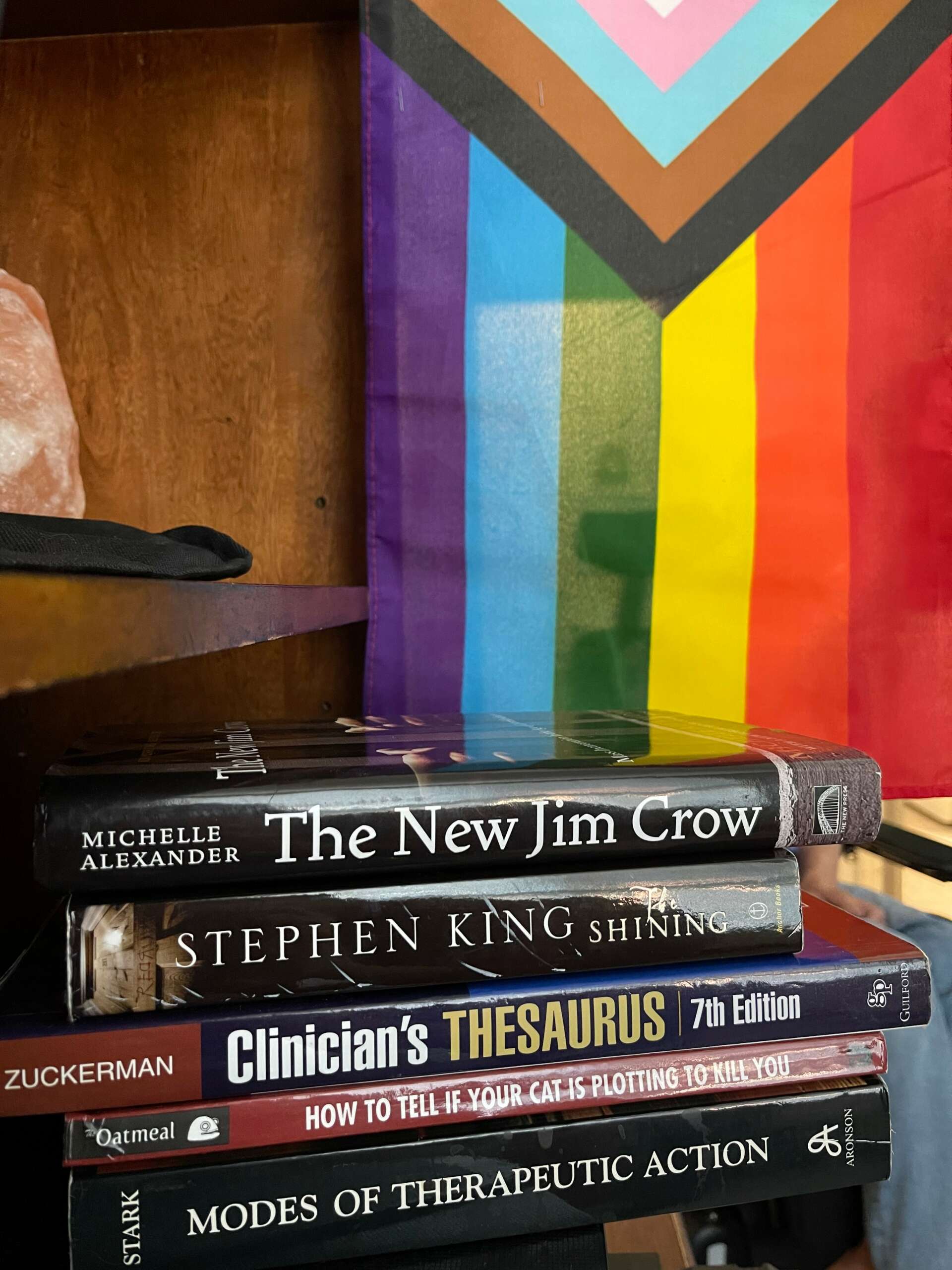We were lucky to catch up with RORY DOUGALL recently and have shared our conversation below.
Alright, RORY thanks for taking the time to share your stories and insights with us today. We’d love to hear the story behind how you got your first job in field that you currently practice in.
5:30PM, Thursday November 10, 2022
“Who am I kidding?” I thought as I logged into the Zoom meeting for the first time. I was co-facilitating a psychoeducation group for the Brain Injury Alliance of Colorado (BIAC) with my mentor, Dave. As I waited for the first participants to login, I could feel the messages I was fed about being a therapist cycling through my mind:
“You don’t have enough life experience”
“Your speech is too hard to understand”
“I don’t know if you can become a therapist”
I acknowledge these, and become mindful of the fact they are trying to protect me from failure. I thank them, and redirect my attention back to the participants who had joined the meeting. Dave was giving an overview of the course and I was both listening and observing the faces on the screen.
As Dave introduced himself, I began to become more at ease. I do not like to put myself in the spotlight for too long. I did a generic introduction where I spoke about how I have my MSW and I was helping Dave facilitate discussions around the topics that were going to be discussed. This included the stages of development and how head injuries have an impact on the process of becoming. Exercise and healthy eating were also included in the curriculum.
Each week, I became more comfortable with helping people in processing their experiences with head injuries. Everyone’s story was unique and I learned so much about the different ways people’s bodies operate and what self-care looks like for each of them.
I think the most important aspect of this experience was the ability to show up as myself and learn through the process. Dave did not judge me when I could have done something differently, but rather provided feedback on what factually happened and then helped me identify areas of growth.
I am very grateful for the opportunity to have done the group and I began to feel safe again in pursuing a career in counseling.

RORY, love having you share your insights with us. Before we ask you more questions, maybe you can take a moment to introduce yourself to our readers who might have missed our earlier conversations?
My journey to becoming a social worker started early in my life. My brain suffered a lose of oxygen while my mother was giving birth and that resulted in me having cerebral palsy. My parents were told at the time that this was true to an extent; I used a Dynavox to talk until I was four and took my first steps around the same time. Today I still have struggles with communicating, but I still can use my mouth. I can walk short distances and use Wallie, my power wheelchair to go to the grocery store and the mall. Not being able to walk or talk from a young age taught me about what is really important- what you do for others.
These experiences have brought up a major ethical dilemma in my practice of therapy, especially with those struggling with chronic illness. On the one hand, I want to encourage exercise and physical activity in order to increase overall health and wellbeing. However, I think there is a caveat in the sense that I do not want kids getting the message that the only way to gain approval is to put aside how they feel in order to be able to maximize potential. A four year old doesn’t have the capacity to see the long-term impact of regular physical and occupational therapy., all they are thinking is “This activity hurts and if I complain about it, the adults won’t listen”. I think having a child psychologist involved in the planning of therapies is important in order to help children with chronic illness develop a sense of autonomy while also achieving the milestones that will help them have a higher quality of life.
The other major challenge I faced was coming out as gay, both to myself, and to others. I am a second generation Irish-American, which means Catholicism was baked into the family structure. I started attending religious education after school starting in kindergarten and that went all the way until I was in eighth grade. For a while, I viewed my religious beliefs as something helpful. It helped me have hope and purpose, and a sense of structure in my life. I hoped that if I was good enough, I could come upon a day when I would be able to walk without falling down, be able to be understood without getting frustrated, and be able to play sports.
Unfortunately, very few things in life come without a cost. As with many other major religions, Catholicism believes that being gay is considered an abomination and something to be ashamed of. Even though I knew subconsciously I was at the very least not straight, I was willing to sacrifice my happiness in this life in order to guarantee eternal life without suffering.
Undergrad was when I discovered I was gay and it was the first time I felt like I had the freedom to decide who I wanted to be. My counselor asked me point blank when I described how I felt towards men versus women if I thought I was gay. The lack of external pressure from my family of origin allowed me to explore parts of myself that were stuck in the unconscious for so long. I first came out to my Dad in the car (would not recommend) and he had his suspicions because my best friend in high school also identified as gay. He and my stepmom were the easiest to come out to, while my mom’s side of the family was harder at first and today I enjoy going shopping with her and providing a sense of style when we check out clothes.
In the beginning, as I came out to more people, I became more anxious, which caused me to come out to even more people. This cycle continued until my anxiety increased to the point to where I had a panic attack and felt my heart beating a million times a minute when I finally discovered what I was hiding from myself for my whole life. This landed me in the psych ward and I got discharged later that night.
It was in the spring of my freshman year that I officially decided to pursue my undergraduate degree in social work. Up until this point, I have had to let go of the expectations people had for me in both the physical sense and in the dating arena. I lost my faith in the idea of heaven and began to look at religion more cynically as a way to justify controlling how people behave and believe. Once I lost those beliefs and my abilities, what was left was what I did for others.
It took a lot of healing to get to where I am today. Even after graduating from the University of Denver and being out for three years, I still had tremendous feelings of guilt and shame about who I was. I turned to alcohol to try to numb those thoughts and feelings. Even though it helped me temporarily avoid the pain, the struggles did not change when the effects weared off the next day. I learned throughout my journey through sobriety to not judge anything as good nor bad, but to be present with what is.
I moved to Boulder, Colorado in the summer of 2020 and that is where I got sober and really began to start my healing journey. Today, I have 2 years of sobriety and am still going strong. I have developed a new way of being in the sense I believe everyone is capable of doing right by others, loving themselves, and extending that love to their fellow human beings.
I go to work every weekend and I have the pleasure of being part of other people’s journey towards their own happiness and wellbeing. When I first decided what my rate would be, my first instinct was to put it at $40/session. I chose this rate because of my experience with people experiencing homelessness and learning about their stories. I wanted to make healthcare as accessible as possible and I did not want to perpetuate the inequalities that already exist today. I then realized I was sacrificing myself for others and that is something I did not want to model for my clients. I went up to $90 with a sliding scale and that feels accurate for now.
Modern society is very contradictory in many ways. On the one hand, when someone is alive, we glorify them if they have a lot of material wealth. However, posthumously, we discuss what people did for others while they were alive. It seems like we only evaluate how people act after they pass away rather than in the present moment when they are having an immediate impact on others.
I may not be able to give back everything that was given to me, but it is my mission to see people as they are and being part of moving towards celebrating different ways of being in the world.

How about pivoting – can you share the story of a time you’ve had to pivot?
There were a few times when I had to pivot in my career. The most notable one was when I went to graduate school, I had the hope subconsciously if I could distract myself with other people’s stories, it would be a lot easier to cope with the internal struggles I was facing today. Unfortunately, that was not the case, and that is something I learned the hard way.
My first internship in grad school was at a public charter school as a mental health counselor. I arrived on the first day with my mom and even before I entered the school, I had a pit in my stomach. It was then that I met my supervisor and I learned it was her first time having interns under her. I was nervous and conflicted because even though I was nervous, I appreciated her effort to be inclusive.
Two weeks in, I quickly found out that the job was too fast paced and the internal feelings of low self esteem was coming up in sessions. I had a lot of anxiety and fear of failing if a client was to harm or kill themselves. I had not learned yet how to depersonalize and have healthy boundaries with others. I still thought it was a reflection on me if a client did not succeed or their mental health did not improve.
I ended up switching concentrations mid-year from mental health to community organizing. I did my internship at a counseling center as a fundraiser keeping track of donations and advertising in order to raise money. I knew this was something I did not want to do as a career, but I was thankful for getting the chance to graduate.
After that, I kind of wandered for awhile. I eventually ended up going back into mental health after I went on a personal journey and exploration of where I needed to heal in order to be better able to heal others. My first mental health counseling experience was co-facilitating the psychoeducation group with Dave. I was really nervous and made some mistakes along the way, but I learned how to be with them and grow rather than shaming myself and hoping that running away from those mistakes will motivate growth.
Even though my trajectory was not linear, I am glad that I had the opportunity to work on myself and learn important life lessons that I can share with my clients.

Putting training and knowledge aside, what else do you think really matters in terms of succeeding in your field?
One of the components of being a mental health professional that is not often discussed is the amount of healing that you have to do in order to be good at helping others. Before I really entered the field, I thought that I could heal myself through healing others. I hoped that by taking on others’ pain, I could feel better knowing someone was doing better than I was. The reality is that if you ignore your own pain, it will just keep rearing its head until you acknowledge it.
Today, I am a different person than I was two years ago. I can regulate myself and validate my strengths. I can go through the world and not feel entirely responsible for how others feel. Sometimes, I will have the urge to rescue others from pain, but in those moments I remind myself that they probably just want someone to listen to them and that is the best thing I can do for them in the moment.
Everyone is a hero in a way but I have a couple people I have looked up to in my journey to starting my practice. I have a physical disability, identify as gay, and am in recovery. I think because of my diverse life experiences, I have sought out the guidance of many different people who have helped me in different ways.
One of my mentors, Dave, for example, has a head injury and faced other challenges in his life and used those experiences to help others. I think his perspectives and experiences has shaped the way I look at my challenges and learn how to work with them, rather than trying to resist them in some way. This has helped my disability have less of a charge to it and is more of an aspect of me that I navigate everyday.
I have two other primary supportive people in my life named A & B, who identify as LGBTQ and has helped me through that aspect of my journey. They came out at a time when society was not as accepting of the LGBTQ community as today. I figured if they could come out and be comfortable with themselves, I can too.
My social work supervisor Josie has faced professional barriers and doubts in starting her practice. I think many industries are still dominated by people who are part of the majority in our society. I had similar doubts about myself as well in my career. There were many people who challenged my aspiration to become a social worker and being stubborn, I went through with it anyway. I’m glad I did because the work I do is so rewarding.
My business coach Lena has multiple invisible disabilities and chronic illnesses including Ehlers Danlos Syndrome (EDS) and Postural Tachycardia Syndrome (POTS). She runs a private practice and has taught me a lot about how to be resilient in the face of obstacles. She has taught me how to take care of myself while also being able to take care of others.
All these people have inspired me to keep going, even when the journey gets tough. That being said, I will never stop learning and growing. The brain alone is such a complex organ and it basically runs your whole body. I look forward to not only learning about the mechanisms behind behavior, but also about the diverse life experiences I am going to encounter as a social worker.

Contact Info:
- Website: Rorydougallcounseling.com
- Other: https://www.psychologytoday.com/us/therapists/rory-dougall-boulder-co/870591 Email: [email protected]


